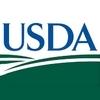Use of FTA Cards for the Transport of DNA Samples of Salmonella spp. from Poultry Products from Southern Brazil
Background: The contamination of products with Salmonella is a major threat to the poultry industry because the possible transmission to humans and animals can produce a huge negative impact. The diversity of Salmonella enterica serotypes complicates the diagnostic systems and the transport of live cultures to the diagnostic labs may represent a biohazard. Current methods for serotyping using antibodies do not work well for many Salmonella serotypes and reagents are not often available. For these reasons, methods that assign serotype by the analysis of DNA are preferred. One step that is currently in development is streamlining methods for DNA submission to the laboratories for sequencing. For this purpose, we investigated filter papers commercially available (Flinders Technology Associates - FTA) to ship DNA samples. Filter papers are impregnated with a chemical formulation that lyses cells, immobilizes DNA, and protects it from degradation. The objective of this study was to assess the feasibility of the FTA cards for transporting Salmonella DNA samples in order to reduce biohazards and if they would yield enough DNA in quantity and quality for molecular analyses.
Material, Methods & Results: In this study, 156 samples of Salmonella enterica serotypes Enteritidis, Heidelberg, Hadar, Gallinarum, Typhimurium, Agona and Pullorum were isolated from poultry products and environments in southern Brazil. Samples were stored in the Avian Diagnostic and Research Center of the Federal University of Rio Grande do Sul. Following instructions for spotting cards with cell cultures at a density that visually matched a McFarland Turbidity Standard 0,5; they were shipped to the Agriculture Research Service of the United States Department of Agriculture (USDA-ARS, Athens, GA-USA), using FTA cards. Upon the reception of the cards, safety testing was performed by transferring one disk from each sample into 10 mL of brain heart infusion (BHI) tubes and incubated at 37°C for 24 h. The BHI tube that showed turbidity after incubation was transferred to brilliant green (BG) agar and incubated at 37°C for 24 h to 48 h. If colonies were obtained in BG, biochemical analyses were performed by using the Enterotube method. Only one sample (S.Enteritidis) showed turbidity in BHI, but any bacterial growth was observed in the BG agar. The average DNA concentration, as measured by spectrophotometry, was 42,32 (± 9,84) ng/µL and the average 280/260 ratio was 1,9 (± 0,09). All the analyzed samples were negative for live cultures of Salmonella and the DNA obtained was suitable for molecular testing.
Discussion: FTA cards can be used to transport DNA samples from pathogenic bacteria, reducing biohazards associated with shipping live cultures. The possibility of shipping DNA, in an economic and safe way, for testing samples at the laboratories facilitates the identification of Salmonella enterica serotypes that are circulating in the environment of poultry. Turbidity in BHI tubes that did not result in colonies on agar media may be caused by the presence of other contaminants such as environmental saprophytic microorganisms that may occurred during the process of handling the cards. DNA samples of Salmonella enterica shipped from Brazil to the United States for this set of isolates did not show bacterial growth. Thus the FTA cards provided safe and effective inactivation of the pathogen, and the DNA obtained from the cards were adequate for downstream analyses.
Keywords: FTA cards, Salmonella enterica, biohazard, PCR.
Abstract published in Acta Scientiae Veterinariae, 2012. 40(4): 1073.























